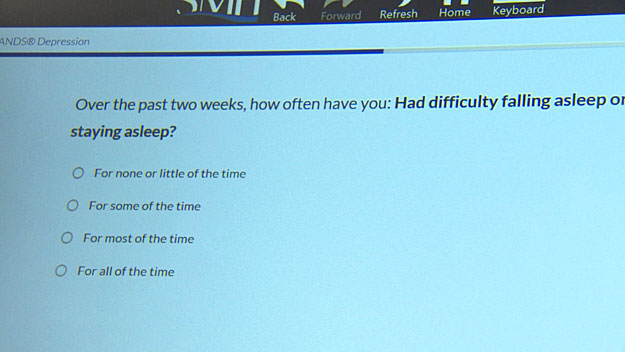-
Tips for becoming a good boxer - November 6, 2020
-
7 expert tips for making your hens night a memorable one - November 6, 2020
-
5 reasons to host your Christmas party on a cruise boat - November 6, 2020
-
What to do when you’re charged with a crime - November 6, 2020
-
Should you get one or multiple dogs? Here’s all you need to know - November 3, 2020
-
A Guide: How to Build Your Very Own Magic Mirror - February 14, 2019
-
Our Top Inspirational Baseball Stars - November 24, 2018
-
Five Tech Tools That Will Help You Turn Your Blog into a Business - November 24, 2018
-
How to Indulge on Vacation without Expanding Your Waist - November 9, 2018
-
5 Strategies for Businesses to Appeal to Today’s Increasingly Mobile-Crazed Customers - November 9, 2018
Face-to-face social interactions more powerful in guarding against depression
Older people who enjoy face-to-face contact with friends and family are more likely to avoid depression than those who rely on phone calls and emails to keep in touch, says a study.
Advertisement
The team analyzed data of 11,065 adults aged 50 and older who were part of the University of Michigan’s Health and Retirement Survey between 2004 and 2010. Those aged 50 to 69 benefited more from socializing with their friends.
Researchers checked participants’ condition at a later data, after two years, and they have discovered that 12 percent of the people who preferred online communications suffered from one form or another of depression. Anyone who feels depressed or lonely is usually seeking attention, from anyone, but most importantly from loved ones.
The researchers then looked at the risk of study volunteers developing depression symptoms over a two-year period, while accounting for factors such as health status, distance from family members and history of depression.
The researchers studied how often participants spoke with family and friends, via four modes of contact: in person, telephone, letter and email.
The study also compared getting a phone call from loved ones against physical contact.
In the day and age of digital communications, face-to-face interactions have been pegged better than phone calls and emails when it comes to guarding against depression. It’s the first study to compare how the different types of social contact affect our mental health. “The more frequently you get together with friends and family, the better chance you have at fighting depression”, said Teo.
Lead study author Alan Teo, who is an assistant professor of psychiatry at Oregon Health and Science University, says the connection between in-person contact and wellbeing isn’t just a correlation. Conversely, those who saw people just a few times a year were twice as likely to be depressed than the others. They also reported that having more or fewer phone conversations, or written or email contact, had no effect on depression.
Although virtual forms of communication were found to be ineffective in this particular study, Dr Carbone said it was beneficial to a person’s social inclusion, especially for youth. The other group did not receive care other than what might have been initiated by their family members.
Doctors should therefore consider “encouraging face-to-face social interactions as a preventive strategy for depression”, they say. “As opportunities for connecting grow with social media, I hope we can study more how different ways of connecting influence mental health”.
Advertisement
The findings support the notion that being social, especially in your later years, can be an effective way to improve mental health and guard against depressive symptoms.





























